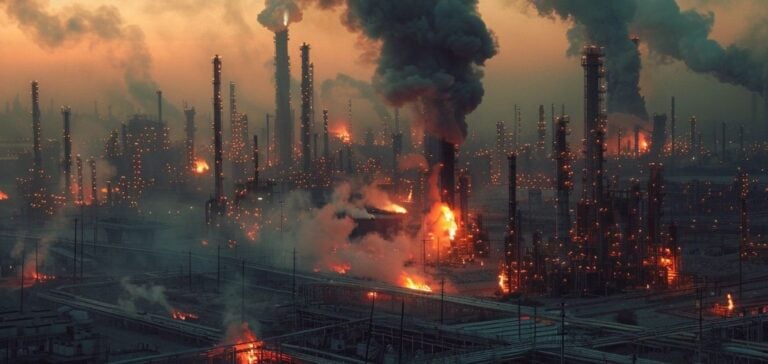Libya has experienced a new wave of violence in the Zawiya region, located 45 kilometers west of Tripoli, leading to the shutdown of one of its major refineries. Early Sunday, armed clashes erupted near the facility, causing significant damage and fires to several infrastructures.
Built in 1974, the Zawiya refinery is vital for the country. With a refining capacity exceeding 120,000 barrels per day, it is the only infrastructure in western Libya supplying the local market with fuel. In addition to its refining activities, it serves as a port terminal for the import and export of petroleum products.
A State of Force Majeure Declared
In a statement issued by the National Oil Corporation (NOC), the suspension of production was confirmed, along with the declaration of a state of force majeure, an exceptional measure that allows the suspension of contractual obligations in cases of force majeure. NOC spokesperson Khaled Ghulam clarified on Libya al-Ahrar television that the fires caused by heavy weapons were brought under control thanks to the intervention of civil defense teams.
Local sources report a provisional toll of one death and ten injuries among the combatants. However, these figures have not yet been officially confirmed by the authorities.
Impact on the Population and Transportation
The clashes also paralyzed educational and economic activities in the region. According to the Libyan news agency Lana, all schools and universities in Zawiya have suspended classes. The coastal road linking Zawiya to Tripoli was temporarily closed before reopening in the morning.
Despite the disruptions, the NOC assures that fuel supply remains stable. “The distribution of gasoline to service stations continues uninterrupted thanks to the reservoirs of Brega Oil,” the spokesperson reassured.
A Persistent Context of Chaos
Since the fall of Muammar Gaddafi’s regime in 2011, Libya has faced chronic instability marked by rivalries between two competing governments. Zawiya, the third-largest city in Tripolitania after Tripoli and Misrata, is often the scene of violence between armed factions. These recurring clashes, sometimes motivated by social or political demands, further weaken the country’s vital infrastructure.
Despite these challenges, Libyan oil production recently reached 1.4 million barrels per day, a significant increase compared to recent years. However, this incident risks disrupting the national energy sector’s ambitions once again.






















